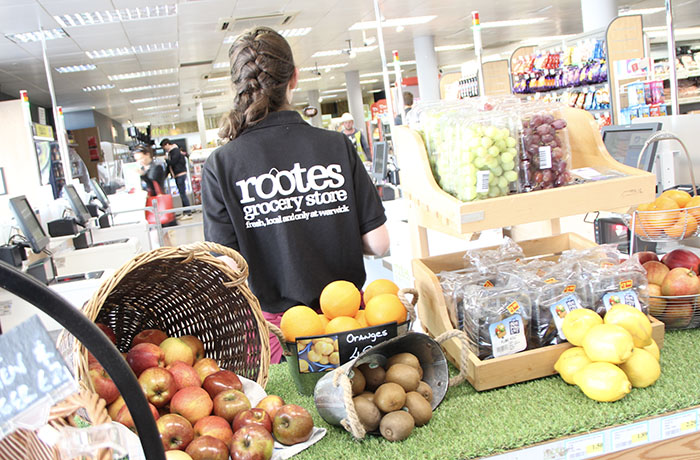A new research project launched by a partnership including the University of Warwick will explore how shoppers can be encouraged to make more sustainable food choices while they do their online shopping.
The online shopping project is part of the SALIENT food trials, a consortium of eight universities and two research institutes looking at ways to support healthier eating and reduce the impact of food on the planet, funded by the UK government through the ESRC. The trial is facilitated by a web browser extension for the online grocery platform of a major UK supermarket, which will pull information from a database of over 14,000 ‘life cycle assessments’ for the available products compiled by food sustainability experts Sustained.
Up to 2750 UK shoppers will be recruited to take part in up to five waves. They will be invited to download a plug-in for their internet browser which will provide two sorts of nudges to help guide their purchases:
- Eco-labelling: these will inform online shoppers about the environmental footprint of their food choices, using an A (least impact) to G (most impact) rating system.
- Product Swaps: shoppers may be shown products with a lower environmental impact and equal or better nutritional profile, in place of their initial choices. These may also be made available at a discount to test the effect of lower prices on purchase decisions.
The researchers will evaluate the impact of these interventions on the environmental rating of consumers’ shopping baskets, to understand whether either intervention results in more sustainable shopping habits and by how much.
Professor Thijs van Rens, co-lead of the Sustained trial, said: “Offering swaps and price discounts are promising ways to get people to buy more sustainable foods, which are often better for their health too. But we have very little evidence for how effective these interventions are, particularly for online grocery shopping.
“Previous research has mostly focused on physical supermarkets or on simulated online supermarkets. But we know that people often make quite different choices in real life than in simulated environments.
“Our collaboration with Sustained will provide a great opportunity to generate real life data which we can analyse in order to recommend policies with the best chance of changing behaviour in a positive way.” Professor Oyinlola Oyebode, also co-lead of the research trial, said: “Climate change and environmental degradation are important and serious challenges for human health.
“Changing the food we produce, buy and eat can help to address this, and more sustainable food often offers direct benefits for health too.” Carl Oliver, Sustained CEO, said: “Empowering more sustainable purchasing choices is part of the journey to reducing the massive impact the global food system has on the environment.
“This trial is also about understanding how industry and policy makers can utilise technology partners like Sustained to shape a food system that supports the health of us and our planet. This is an exciting partnership for Sustained as we work towards our vision of helping consumers and businesses reduce their environmental impact through actionable intelligence and collaboration.”











